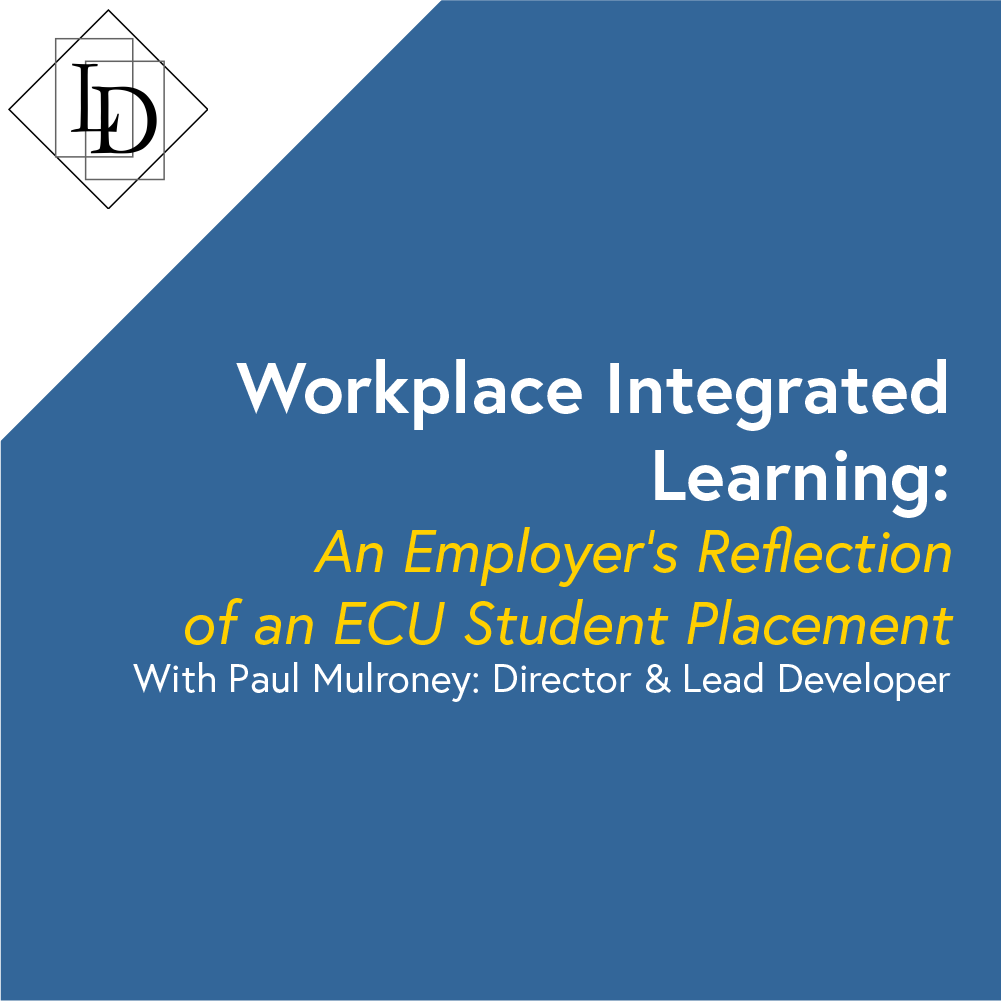
Workplace Integrated Learning: An Employer's perspective of an ECU student placement
This semester we hosted Jordan as an Intern at Logical Developments. Jordan is a participant in the Workplace Integrated Learning (WIL) program. The aim of the program is to give students practical industry experience to balance with the knowledge gained during their course. An Intern works for a semester at the host organisation. The host organisation then provides the Intern with a series of experiences that reflect the industry that they are planning a career in. Jordan, who had spent some time with us in previous semester breaks gaining hands-on experience in software development, resumed working on a project that he was a participant in last time he was with us, as well as starting a new design project. It was an opportunity to learn the tools that we use in the day-to-day: Omnis Studio, Balsamiq mockups, and PostgreSQL. After a meeting with his WIL coordinator and some due diligence administrivia, Jordan became a full-time fixture in our office for the semester.
We were excited to have Jordan with us - an Internship is a low-risk way of introducing students to the practical realities of the real world. It also allows us some freedom to explore projects that we may not be able to do otherwise without the additional resources available. Jordan enjoyed being part of the team, working aside people with similar interests and goals - he said to his mother once that 'it was nice to be able to talk to other people who knew what he was talking about!' The experience was a positive one for all parties involved.
Internships require additional oversight and management - sometimes coding problems require non-optimal solutions because the theory doesn't work well in practice, or is not economically feasible. There are adjustments required by the organisation and the intern - interns come armed with the theoretical 'best practice' models from their coursework, but sometimes these models cannot be implemented because the overhead required to implement it negates any benefit of using it. Jordan picked up the projects quickly, and was able to learn new skills and apply them to the project at hand. This was a godsend to us, to be able to direct Jordan to the problem and then let him work the problem through to a practical solution. Interns require more direction, and they need to learn to speak up when they are stalled with an issue - in a small business environment, the rest of the office are usually focused on their own tasks, and don't necessarily notice when people require assistance. Our regular staff meetings give everyone an opportunity to share their progress with their various projects.
We realised that in some ways we are a training organisation - we provide an environment for people to learn new skills and abilities, and apply these to the situation at hand. We strive to provide a positive, welcoming office environment that gives people freedom to do their work and not worry about office politics etc. The team encourage one another, and provide input so that the end result is a better product and solution for our clients. I believe that we have an obligation to the upcoming generation to prepare them for realities of the work that will consume a significant portion of their lives. In a way, Internships are a way to do that, and the WIL program makes it accessible to small businesses like Logical Developments, who may not have the resources of much larger organisations.
A past employee, who now currently lectures at another university, commented to his students that when you work for Logical Developments, you start building code almost immediately that will be deployed to clients. In larger organisations, it may be a significant period of time before that happens, so there is a sense of immediacy in working for smaller software development houses that doesn't exist in other arenas. This can lead to a sense of accomplishment that may not be available in larger companies. Jordan can take pride in going to one of our client's sites, pointing to his contribution, and say 'I made that' (look out for the announcement - WA Museum).
We hope to continue working with ECU to provide opportunities for other interns, as well as foster relationships with other universities who run similar programs.